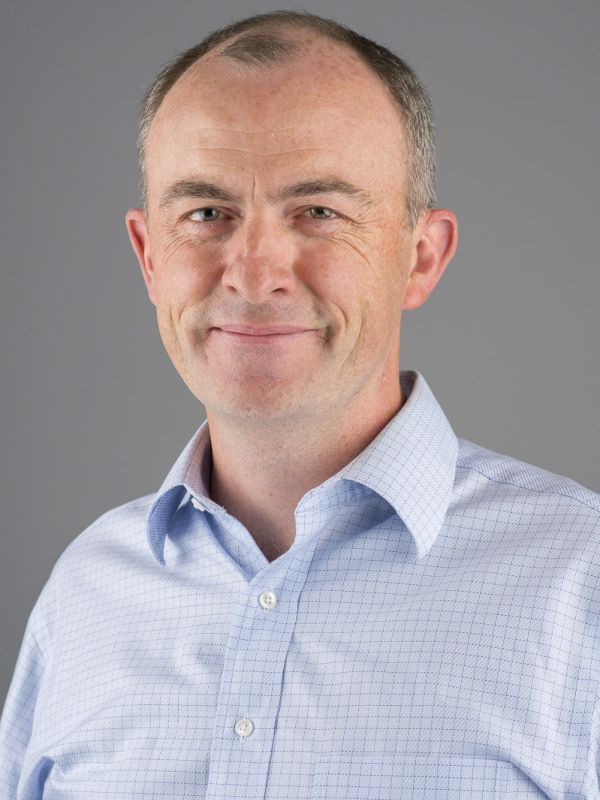
Kieran Holland
PhD, Massachusetts Institute of Technology, 1999
MS, University College Cork, 1995
BS, University College Cork, 1994
Teaching should be dynamic and interactive. It's not about what I can do, it's about students trying something for the first time, and seeing if they can do it. I think the following traits are essential in teaching:
• enthusiasm - whether to an audience of 18 or 80 year-olds, if you cannot convey the excitement of learning and discovery, your message is drowned out by all the other distractions.
• clarity - there is no substitute for clear understanding and thorough preparation. That holds at the level of daily lecture material, course organization, and expectations of student performance.
• skills - most students I teach will not become physicists. In their future careers as lawyers, biologists or engineers, they should learn to analyze evidence, interpret results, spot contradictions and present their conclusions. It is vital to emphasize how these skills are developed in their undergraduate career.
• discovery - many students think physics is a "dead" and completed subject. Where possible, I emphasize in my courses new discoveries and how we continue to learn more. They should leave college understanding the open-ended nature of inquiry and the importance of fundamental research.
• engaged - the lecture/listen mode of teaching allows students to drift off and lose focus, not realizing their gaps in understanding until later. As often as possible I break up the class, with quizzes, demonstrations or group work, getting the students active and involved. It's also important the students and I get to know one another - the relatively small class sizes at Pacific give students the individual attention not possible elsewhere.
• trust - students have to believe that they will be treated fairly, given every opportunity to succeed, without preference or bias.
My research is in theoretical particle physics, concentrating on lattice field theory to explore non perturbative properties of quantum field theories. I am currently working on possible Beyond Standard Model theories, where the standard Higgs mechanism is replaced by a new strongly interacting gauge theory. This is the general paradigm of Technicolor theories, analogous to Quantum Chromodynamics (QCD) the theory of the strong nuclear interaction between quarks and gluons. The Large Hadron Collider at CERN is exploring the energy regime where the mechanism of Electroweak symmetry can be elucidated, and Technicolor models are one of the possible candidates for new physics. Technicolor models solve some of the difficulties of the standard Higgs mechanism, such as naturalness and triviality, and require lattice simulations to establish their basic properties as viable candidates.
In my previous research I have worked on other non perturbative properties of field theories: the finite temperature phase transition associated with confinement of color charged quarks and its association to the underlying fundamental gauge symmetry; bounds on the Higgs boson mass in the Standard Model arising from the interaction with the heavy Top quark; acceleration of lattice QCD simulations via highly improved bare actions to remove artifacts of the lattice discretization; developing non-local cluster algorithms to allow simulations of strongly interacting fermions on the lattice; and properties of domain wall defects in field theories with associated global symmetries.


